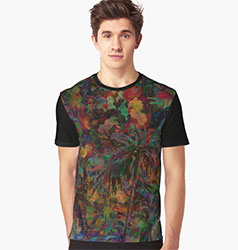The number of known cannabinoids is over a hundred. Each one has its own set of effects. People with limited knowledge of cannabinol (CBN) have assumed that it is simply a degraded, less potent cannabinoid derived from THC. It’s barely present in cannabis flowers and it is nowhere near as psychoactive as THC. You can find more cannabinol in older, degraded material making anything with its presence less desirable. As a result, this cannabinoid hasn’t received much attention. However, the industry is catching on to the fact that CBN has therapeutic effects that benefit people who are sensitive to THC. Now, CBN is being isolated, extracted and used in cannabis products like topicals, edibles, capsules and more.
What Is Cannabinol (CBN) & What Does It Do?
Any company with a cannabinol product is using the powerful sedative effects as a selling point. According to Steep Hill[1] labs, Cannabinol is the most sedative known cannabinoid. They claim that 5mg of cannabinol is equal to 10mg of diazepam (valium) in terms of body relaxation. There’s a theory that the reason Indica strains make you sleepier is that they have higher CBN levels. So if you don’t like buds that makes you sleepy, look for strains or products with slim to no cannabinol content.
Cannabis plants produce enzymes which turn CBGA into the “raw cannabinoids” like THCA, CBDA and CBCA. THCA when heated turns into THC and THCV. Aged THCA turns into CBNA which converts into CBN. Research has shown cannabinol to have a number of therapeutic benefits.
Researchers studied[2] the feeding patterns of rats after administering cannabinol. What they found was that rats treated with CBN were quicker to eat, ate more and for longer durations of time. The research concluded the less popular cannabinoid was a viable nonpsychoactive appetite stimulant.
A 2006 study[3] found that CBN and several other cannabinoids have the ability to control the growth of cancer cells. CBN was specifically able to control a type of lung tumor called Lewis carcinoma.
Back in 1974, researchers found[4] that THC, CBD and CBN all had anticonvulsant properties but potency-wise, CBN is less active than the other two.
In 2002, Swedish researchers at the Department of Clinical Pharmacology at Lund University Hospital found out[5] cannabinol and THC activate the same pain pathways.
More Research On Effects
Studies on male volunteers[6] illustrated that doses of CBN did not provide the psychoactive effects that THC did. The study also noted that subjects felt more “drugged, drunk, dizzy and drowsy” when it was combined to THC. They concluded that, “CBN increases the effect of THC on some aspects of physiological and psychological processes, but that these effects are small.”
On the other hand, some studies didn’t not as much of a synergetic effect when combined with THC. However, one study[7] found the combination of THC and CBN did nothing to change “the quality, intensity, or duration of the effects of THC alone.”
Research[8] has also shown that cannabinol is capable of slowing the onset of symptoms from ALS.
Additional research[9] shows cannabinol has antibacterial capabilities as a topical. The study showed “potent activity against MRSA.”
Experimental and preclinical studies[10] have shown topical cannabinol’s potential for treating skin conditions like psoriasis or burns.
Where Can You Find It?
Up until lately, the only place you could find CBN was in extremely small concentrations of certain weed strains. The concentrations in flowers are typically 1 percent or less. Until recently, extracts have either focused on isolating THC or CBD. Fortunately, less common cannabinoids like delta 8 THC[11] and THC-O-acetate[12] are starting to be isolated and extracted. CBN is no different. As a result, more products with higher percentages of CBN are hitting the market.
Mary’s Medicinals[13] Cannabinol Capsules is one form that is easy to ingest for any type of patient suffering from sleep-deprivation. Capsules make it easy to know exactly how much you’re consuming in a single sitting. Mary’s Medicinals also has high-cannabinol transdermal patches.
For patients that don’t like swallowing pills, SpOILed Patients Collective[14] makes a high-dose CBN drink called Hornet Hibernate. They named it after its sedative effects.
Final Hit: What Is Cannabinol?
The thing that sets cannabinol apart from the other cannabinoids in weed is the strong sedative ability. It can also stimulate appetite and curb anxiety without the side effects of a medication like a valium. The research on cannabinol, especially on humans is currently lacking. As more research is conducted on CBN, we may find even more uses for it. Most of the reported effects don’t have much to back them up.
References
- ^ Steep Hill (www.steephill.com)
- ^ Researchers studied (www.ncbi.nlm.nih.gov)
- ^ 2006 study (www.ncbi.nlm.nih.gov)
- ^ found (www.sciencedirect.com)
- ^ found out (www.jneurosci.org)
- ^ Studies on male volunteers (www.karger.com)
- ^ one study (onlinelibrary.wiley.com)
- ^ Research (www.tandfonline.com)
- ^ Additional research (www.researchgate.net)
- ^ Experimental and preclinical studies (psoriasisnewstoday.com)
- ^ delta 8 THC (hightimes.com)
- ^ THC-O-acetate (hightimes.com)
- ^ Mary’s Medicinals (www.marysmedicinals.com)
- ^ SpOILed Patients Collective (www.instagram.com)
Read more https://hightimes.com/guides/what-is-cannibinol-cbn/
Latest
Coronavirus Strikes Massachusetts Cannabis Company Employees
Reassessing the Essential: Cannabis in the Time of a Pandemic
5 Reasons To Try Aspen Valley CBG Flower (30% Off)
High Times Cannabis Cups Go Virtual In Wake Of Coronavirus Pandemic
Drug Enforcement Administration Proposes Plan To Expand Cannabis Research
Ghana Legalizes Cannabis For Medicinal And Industrial Uses
The cheapest legal weed in Canada: Discover these cannabis ‘value brands’
Cannabis and coronavirus: Here’s what you need to know
cannabis designs
The Best Of
WHO Rules CBD Should Not Be a Scheduled Drug

Dr Cristina Sanchez PhD video interview on medical marijuana and cancer

Biochemist Dennis Hill interview; Cannabis oil as a cure for cancer.

The unofficial World Record holder for cannabis smoking part 1




